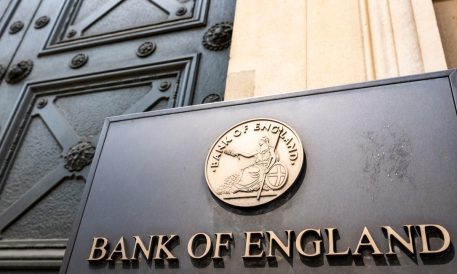
England’s central bank has reportedly begun hiring workers to develop its digital currency.
The Bank of England (BOE) wants to create a team of up to 30 people to oversee its central bank digital currency (CBDC) project, according to a Saturday (April 8) report by the Times.
“A team of 30 seems like quite a significant resource to focus on the digital pound,” Ian Taylor, an adviser to the trade association CryptoUK, told the Times. “It shows the impact it would have, and that the bank are serious about it.”
The career section on the BOE website lists openings for a “digital pound solutions architect” and “digital pound security architect,” both added in the last week of March.
PYMNTS reported in February that the BOE and U.K. Treasury were studying the feasibility of an official digital currency by 2030.
The currency, which is also being referred to as the “digital sterling” or “digital pound” — and nicknamed “Britcoin” — would be issued by the BOE and backed by the government.
“At this stage, we judge it likely that the digital pound will be needed in the future. It is too early to decide whether to introduce the digital pound, but we are convinced preparatory work is justified,” the two entities said in their consultation paper.
Last week, PYMNTS examined the issue of “programmability” in digital currencies.
“Programmability has been pegged as one of the major draws of digital currencies and one of innovative services that central bank digital currency could help facilitate,” we wrote.
“But there is a distinction to be made between programmable payments — setting predefined terms for a payment to be initiated — and programmable money.”
In the EU, for example, the European Central Bank (ECB) has dismissed the possibility of the regional CBDC becoming the latter, thus requiring the ECB to limit where, when or to whom digital currency payments are made.
It’s a move that Martin Hargreaves, chief product officer at Quant, supports, as he pointed out the damage that restrictions on money movement can have on CBDC adoption and usage.
“When you start to place restrictions on money, you affect its value. So, if I’ve got £100 but I can only spend it on rent or groceries, that’s not worth the same to me as £100 that I can spend on anything,” Hargreaves said in an interview with PYMNTS.
Looking specifically at the digital pound, he said there are ways to bring the benefits of programmability to the currency.
For example, the U.K., like other nations weighing CBDCs, can use digital currencies to limit the power that Big Tech firms, major card networks, acquirers and payment networks have over how, when and to whom consumer payments are made.






